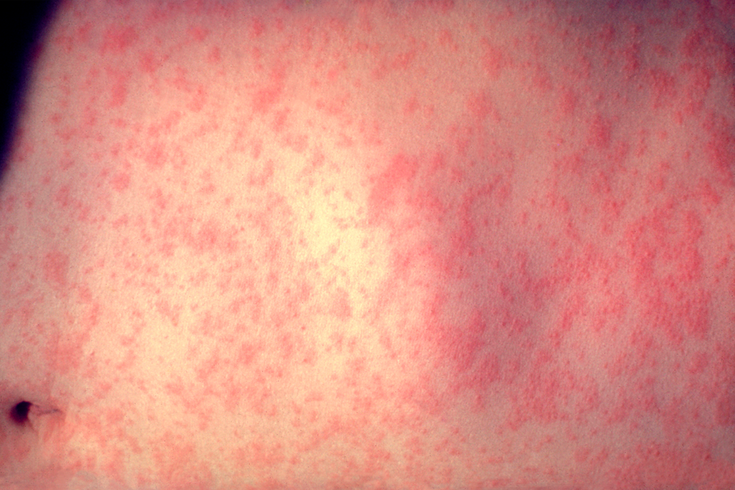
May 30, 2019
 Dr. Heinz F. Eichenwald/CDC
Dr. Heinz F. Eichenwald/CDC
A skin rash on a patient's abdomen three days after the onset of a measles infection.
The number of measles cases in the United States have reached levels that threaten the measles elimination status it gained nearly two decades ago, the Center for Disease Control and Prevention said Thursday.
There have been 971 reported measles cases so far – and the year is not even halfway complete. That's the highest mark since 2,237 cases were reported in 1992. The newest figures surpassed the 963 cases reported in 1994.
Measles cases have been reported in 26 states, including Pennsylvania and New Jersey. The vast majority of measles cases have stemmed from New York, where outbreaks in Brooklyn and Rockland County have spread primarily among Orthodox Jewish communities with low vaccination rates.
If the measles outbreaks persist through the summer and fall, the United States could lose its measles elimination status, which it gained in 2000.
"That loss would be a huge blow for the nation and erase the hard work done by all levels of public health," the CDC said in a statement. "The measles elimination goal, first announced in 1963 and accomplished in 2000, was a monumental task."
Prior to the widespread use of the measles, mumps and rubella vaccine, there were about 3 million to 4 million measles cases every year in the United States, the CDC said. That resulted in about 48,000 hospitalizations and 400 to 500 deaths each year.